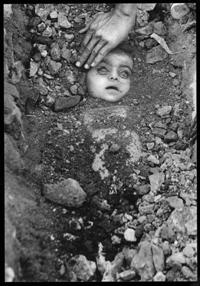Chemistry & politics
Saturday 19 June 2010
 The chemical industry is big business and inevitably involves national and local politics. As teachers we are concerned not to bring our own political views into the classroom but this can mean that we become completely apolitical about our subject for fear of being accused of indoctrination. We should not be afraid of raising issues and asking pertinent questions in order to encourage students to develop their own views and opinions from an informed basis. Although there are no specific issues highlighted on the syllabus, many political issues arise under ‘Aim 8’ which covers social, environmental and moral concerns of chemistry.
The chemical industry is big business and inevitably involves national and local politics. As teachers we are concerned not to bring our own political views into the classroom but this can mean that we become completely apolitical about our subject for fear of being accused of indoctrination. We should not be afraid of raising issues and asking pertinent questions in order to encourage students to develop their own views and opinions from an informed basis. Although there are no specific issues highlighted on the syllabus, many political issues arise under ‘Aim 8’ which covers social, environmental and moral concerns of chemistry.
Two recent news items raise very important questions about the morals of the chemical industry and society in general.
It used to be said that the commercial prosperity of a country could be judged by the amount of sulfuric acid it consumes (Justus Von Liebig, 1803-1873). Whilst this may still be true it cannot be extended to the amount of sulfuric acid it produces as many heavy industries have been transferred from the rich western developed world to less developed countries where both the rules and cost of regulation are much reduced. In June 2010 eight former local employees of the Union Carbide company in India were found guilty of causing death by negligence when toxic gas1 inadvertently released from the Union Carbide India Limited pesticide factory in Bhopal killed thousands of people. This was more than 25 years after the actual Bhopal disaster which occurred on the night of 2/3 December 1984. Seven of those found guilty were fined US$2000 each and given a prison sentence of two years (the eighth had already died). It is alleged that the Chief Executive of the American owned Union Carbide, Warren Anderson, knew about a safety report issued in 1982 which identified 30 hazards in the Bhopal plant and in a similar plant in the US. These hazards were dealt with in the US plant but ignored in Bhopal. Precise details of the damage caused in Bhopal are difficult to quantify as estimates vary. The official immediate death toll has been put at 2259 but many more have died since and some estimates put the total at more than 20000 with more than 500000 seriously affected.
Union carbide (which was taken over by Dow Chemicals in 2001) agreed to pay a sum of US$490 in full and final settlement in 1991 and no-one from the parent company has faced charges over the incident. Charges of manslaughter have been brought against Warren Anderson, the CEO, but he has evaded an international arrest warrant even though India has an extradition agreement with the USA. Union carbide maintains that the release was caused by an act of sabotage but this has never been proven.
The plant itself has still not been removed or decontaminated and more than 300 tonnes of toxic waste still continue to pollute the area heavily.
Contrast this with what has recently happened in the Gulf of Mexico. On 20 April 2010 the Deepwater Horizon, an oil rig owned by Transocean and leased to BP, exploded killing eleven workers. The subsequent oil leak resisted attempts to stem it for at least eight weeks during which time millions of gallons of crude oil leaked into the sea off the coast of Louisiana. BP initially downplayed the incident and estimated about 5000 barrels of oil a day were leaking – more recent estimates put the figure at between 35000 and 60000 barrels a day. Barack Obama, the US President, was very quick to lay the blame on BP and has made them accountable for the full cost of the environmental clean-up. Tony Hayward, the Chief Executive of BP has accepted responsibility and on 16 June 2010 (less than two months after the explosion) BP agreed a US$20billion settlement for victims of the disaster.
Why is compensation and blame for an industrial accident reached so quickly when it happens in a rich nation like the USA and yet more than 25 years on an industrial disaster in India that has had a much more serious effect on the lives of so many more people is still not resolved?
 1 Even now the Union Carbide Company of India has not released the composition of the toxic gas. The leak was caused by water entering a holding tank of methyl isocyanate, CH3-N=C=O. Apart from methyl isocyanate which is extremely poisonous, other poisonous gases that may have been in the cloud of gas include phosgene, hydrogen cyanide, oxides of nitrogen, hydrogen chloride and carbon monoxide.
1 Even now the Union Carbide Company of India has not released the composition of the toxic gas. The leak was caused by water entering a holding tank of methyl isocyanate, CH3-N=C=O. Apart from methyl isocyanate which is extremely poisonous, other poisonous gases that may have been in the cloud of gas include phosgene, hydrogen cyanide, oxides of nitrogen, hydrogen chloride and carbon monoxide.

